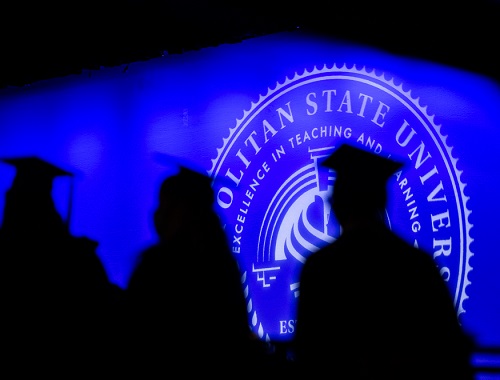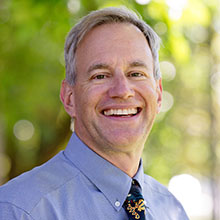

Metropolitan State University of Denver kicked off the new year by becoming the first four-year institution in the state to sign an agreement with the Colorado Community College System to provide stopped-out students with a path to an associate’s degree.
The reverse-transfer articulation agreement, which was signed Thursday, makes any MSU Denver student eligible to apply for an associate’s degree from the community-college system, provided they meet the following criteria:
- The student has stopped out for at least two semesters.
- The student has completed at least 70 credit hours.
- At least 15 of those credit hours were completed at a Colorado community college.
Under the agreement, students must still have completed their General Studies requirements to be eligible for an associate’s degree, said Shaun T. Schafer, Ph.D., MSU Denver associate vice president of Curriculum, Academic Effectiveness and Policy Development.

“We know about one-third of our incoming students over the past five years meet the 15-credit minimum in the community-college system,” Schafer said. “What we will need to see now is how many of them would be aided by this opportunity and if it will serve as an incentive to return and complete a bachelor’s degree.”
The agreement between the University and the community-college system is a direct result of House Bill 21-1330 and the Colorado Re-Engaged (CORE) Initiative. The initiative was intended to provide an encouragement to stopped-out students and an additional credentialing for Coloradans as part of the recovery efforts from the global pandemic. The opportunity for an associate’s degree would apply to students who have stopped out in the past 10 years, Schafer said.
“Some students take winding paths through higher education, so we are still trying to determine how many might be eligible for reverse transfer or some of the other opportunities under the CORE Initiative,” Schafer said.
A moment-in-time look at MSU Denver students who stopped out after the spring 2020 semester revealed that there are 117 Roadrunners who would be eligible to apply to the community-college system for an associate’s degree. Those 117 represent about 25% of the students stopped out that semester.
“We are intrigued to see how many of those 117 students take advantage of this opportunity and how this influences their futures,” Schafer said. “We hope it will be an on-ramp for some of them to return to higher education.”
Reverse transfer is just one component of the CORE Initiative that may affect Roadrunners. The University continues to work with the Colorado Department of Higher Education on implementation of other components of the initiative.

